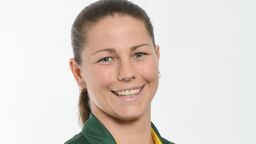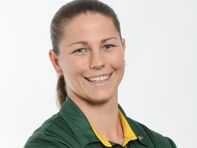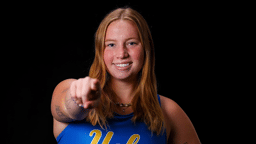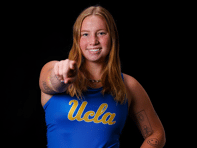I was born in downtown Chicago. With nearly all of my family still to this day based in and around Chicago, I grew up a Chicago Bears fan.
The thought of switching teams to support the Green Bay Packers didn’t cross my mind growing up, even though I moved to Madison at a young age. I was a Bears fan. You don’t just stop being a fan of team you’ve cheered on for more than a decade.
Switch to a longtime rival like the Packers? No way, not for me.
Once I got to college and watched games with friends and teammates rather than family members, my Bears-centric world was challenged. I watched these excited fans decked out head-to-toe in green and gold, Miller Lite in one hand, a brat in the other, while I was basically just going through the motions of cheering on my team. I didn’t feel the same passion and enthusiasm my friends showed for the Pack.
When I was 23 I decided it was time to drop the charade. I went to a local store and – quite nervously – bought my first Packers shirt. That night I was in my room for what felt like hours trying to take the perfect selfie wearing the shirt so I could post my big news to Instagram. After much deliberation, I finally hit “post.”
Immediately I received comments and texts from my friends who were Packers fans so thrilled for me. On the other side I got messages from family and friends who were diehard Bears fans who were concerned. “Are you sure?” “Do you maybe want to rethink?” “No longer friends.”
I’m not kidding.
I was excited, terrified, relieved and nervous all at once. I realized it wasn’t that big of a deal to most people and missed out on some fun in college by waiting. But at the end of the day I was so happy to finally be able to cheer on the team to which I felt a real connection.
That was my most difficult “coming out” experience.
I was fortunate to grow up in an environment where members of the LGBT community were welcomed. As a kid, everyone around me from my mom and neighbors to local politicians and teachers at my schools were supportive. Since this was before the explosion of social media, I didn’t see much of the homophobia and bigotry that is still present outside of my local community.
In college my coach Chris Clark (now my current boss) made it clear that his team was one that was open to any race, religion, ethnicity, socioeconomic background, or sexual orientation, and there was a zero tolerance policy for any racism, bigotry, sexism or otherwise.
“If you can pull on an oar, who cares about the rest?”

We were judged only by our work ethic and results in the boat. Everything else was background noise.
In spite of everything throughout my formative years that would seemingly place me in a prime position to be comfortable with my sexuality, I still didn’t feel at ease talking about it with friends or family.
In college I “hung out” with some guys, but I never considered or wanted a long term relationship. At the time I didn’t feel the need to talk about it with friends or family because I didn’t know where I was at. Was it a “phase?” Doesn’t everyone “experiment” in college? Was I bisexual? Was I gay? Who knows.
Avoiding a complicated conversation seemed like the best solution at the time.
I remember thinking to myself, even if I wanted to “come out,” I didn’t want to make it a “thing” because I believed that no LGBT person should have to put out a press release to announce it. If being LGBT was normal and something to be celebrated, why should I have to go through a whole rigmarole. I don’t believe a person’s sexuality should be the first thing you have to share or be your defining feature. Because of that I avoided any sort of big statement and only shared discreetly with close friends and family.
So what got me past that point? When I was 24, a guy asked me out on a real date. After much badgering and persuading, I finally agreed (who can pass up an invite to a good concert?) We met on Grindr so I wasn’t expecting much, but about two weeks later we were spending nearly every minute of free time together. I kept experiencing an odd feeling that felt familiar.
After a few more weeks I realized: I had again found my Packer team. Everything was just normal. Comfortable.
Me not being “out” complicated the relationship. When it started I had told only a few close friends and family, and I still was not in a place where I saw myself in a long-term relationship. Being apprehensive of how I would be viewed by the general public and people outside my close circles slowed things down. I didn’t feel the drive to share our relationship broadly with friends or family to share much on Facebook or Instagram. That often made the relationship a burden more than a blessing on both of us.
As time progressed I became more open to the idea that this could be someone with whom I could spend my life. I was proud of the guy I was dating: intelligent, confident, ambitious, and handsome, and that made me more self-assured and proud of myself. His relentless drive and pursuit of his goals in his profession legitimized and solidified to me that a gay man could be just as good as or better than his straight counterpart.
During our nearly two-and-a-half-year relationship my own goals blossomed, my ambitions strengthened, and expectations for myself rose. But building a relationship on an unstable foundation isn’t exactly the blueprint for success. If the doubts and unknowns that existed in my mind during the first six months of our relationship weren’t present, maybe we would still be dating today.
My long personal journey through that relationship, combined with the horrific events at the Pulse Nightclub in Orlando, woke me up. That was the first time in my life I truly felt part of the larger LGBT community. I will never forget how sick to my stomach I felt reading the news that Sunday morning. I bought my first Pride shirt and wore it to work that week, the first real outward indication of my sexuality, even if it was subtle.
I felt that I was no longer in a position, like I had believed in college, to remain silent.
The quote from Desmond Tutu kept coming to mind: “If you are neutral in situations of injustice, you have chosen the side of the oppressor.”
Even though we have made great strides to become more open and accepting of LGBT people, there is still a long way to go. And if I didn’t feel comfortable talking about my sexuality because of how I thought the world would look at me, with every privilege and opportunity afforded to me, with no traumatic experiences of bullying or damaged relationships with friends or family, I can’t imagine how hard it is for someone who isn’t in as an accepting environment.
I reached out to Outsports because I have a platform as a Division 1 college coach, and I am in a position – and feel the obligation – a to make a difference in the lives of our youth. That’s what collegiate athletics is all about: providing young men and women with the support, guidance and opportunities to find their best self and graduate prepared to lead in any capacity.
Developing athletes is what we do at the Univ. of Wisconsin. I am a product of that, and I am proud to have returned to continue that mission. Part of that is creating an environment where an athlete’s sexuality is not something that hinders their performance on or off the field.
‘Being part of the LGBT community has done nothing but open doors for me.’
I feel comfortable using this medium because our defining features as readers and contributors is our common passion and involvement in athletics. Rowers and runners and ball players, athletes, coaches and administrators. That’s who we are. Being part of LGBT community is just an extra benefit.
I so very much want to encourage LGBT youth to come out, be it privately to a trusted friend or on a larger scale. I am also taking this opportunity to officially and formally come out more publicly than I ever have before. Our society is not yet at the place where being part of the LGBT community is truly “normal” and accepted. I hope that in sharing my story I can encourage a young man in a similar position as I was to feel more comfortable talking with a friend about what he is going through. And I want to help normalize the presence of the LGBT community in athletics.
No one should come out until they are ready. But I want the world to be a place where everyone feels they can come out. I hope that in the near future the phrase “come out” is phased out, and it becomes a more everyday conversation folks share with their friends and family.
Being part of the LGBT community has done nothing but open doors for me. Whether that was professional networking, strengthening current friendships, starting new ones, or just raising my own expectations of what I am capable of, it has done nothing to slow me down.
Find your own Packer or Badger team and embrace it. You won’t regret it.
Lowell McNicholas is an assistant coach with the men’s rowing team at the Univ. of Wisconsin. You can find him on Instagram @l_mcnicholas, Twitter @l_mcnicholas, or on Facebook.
For more Wisconsin Badgers news, visit Bucky’s 5th Quarter.
Story editor: Cyd Zeigler







































